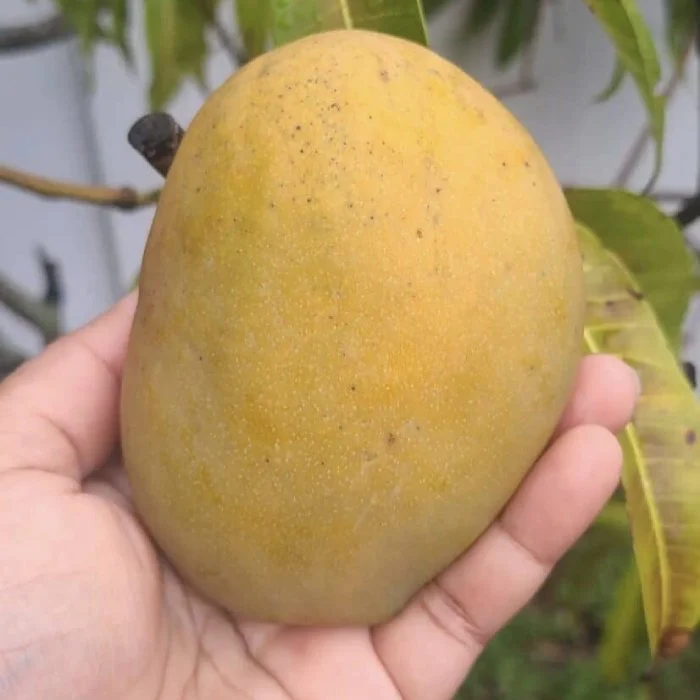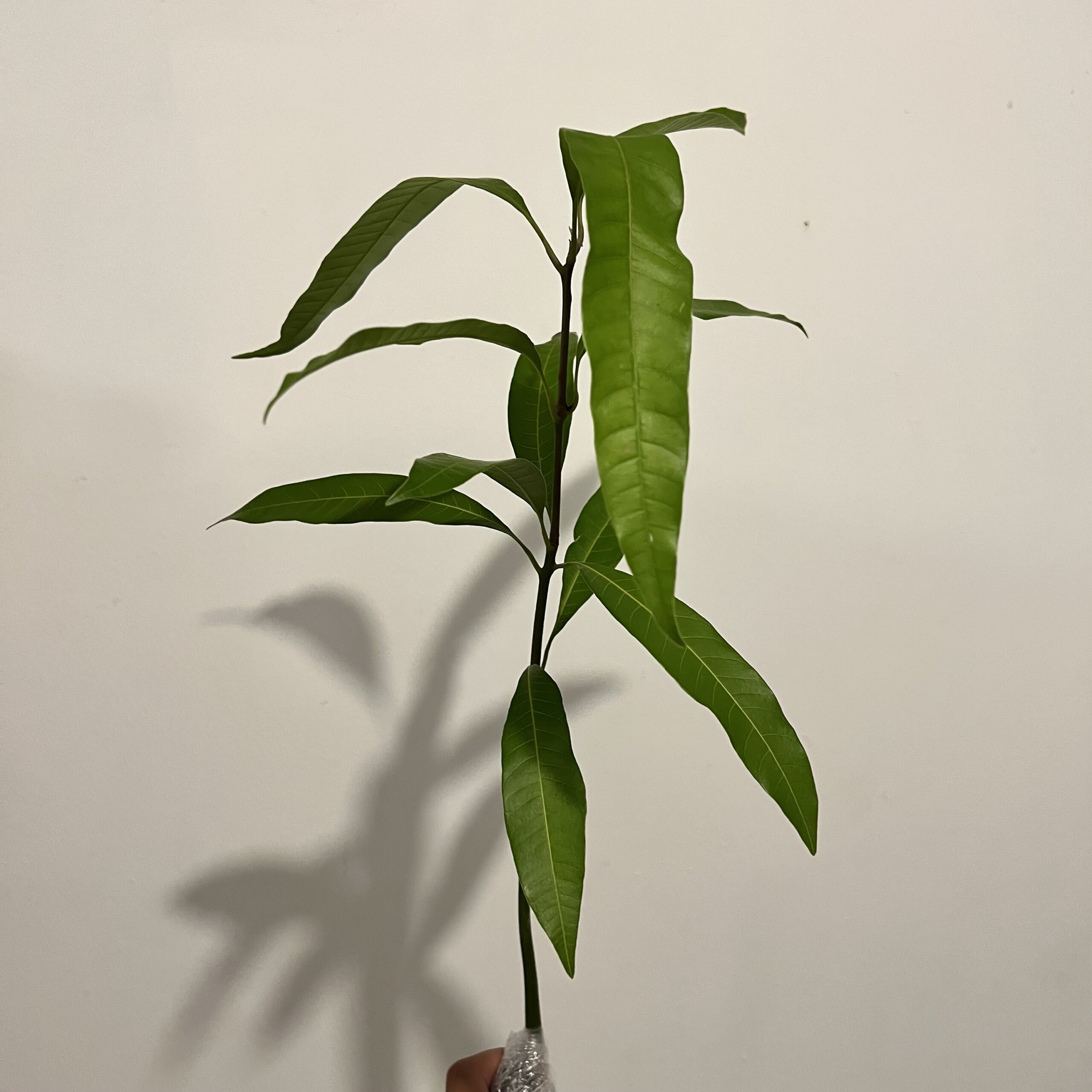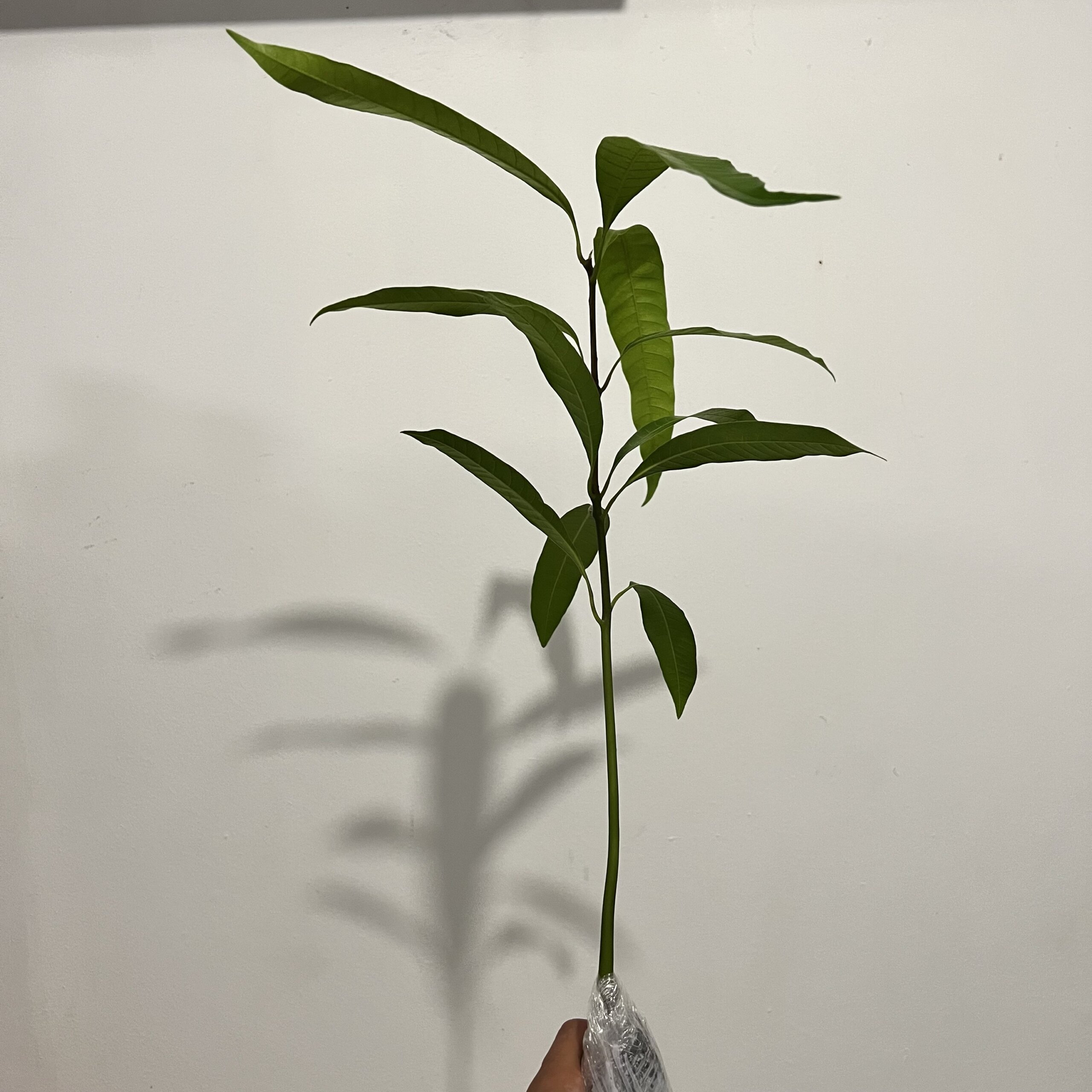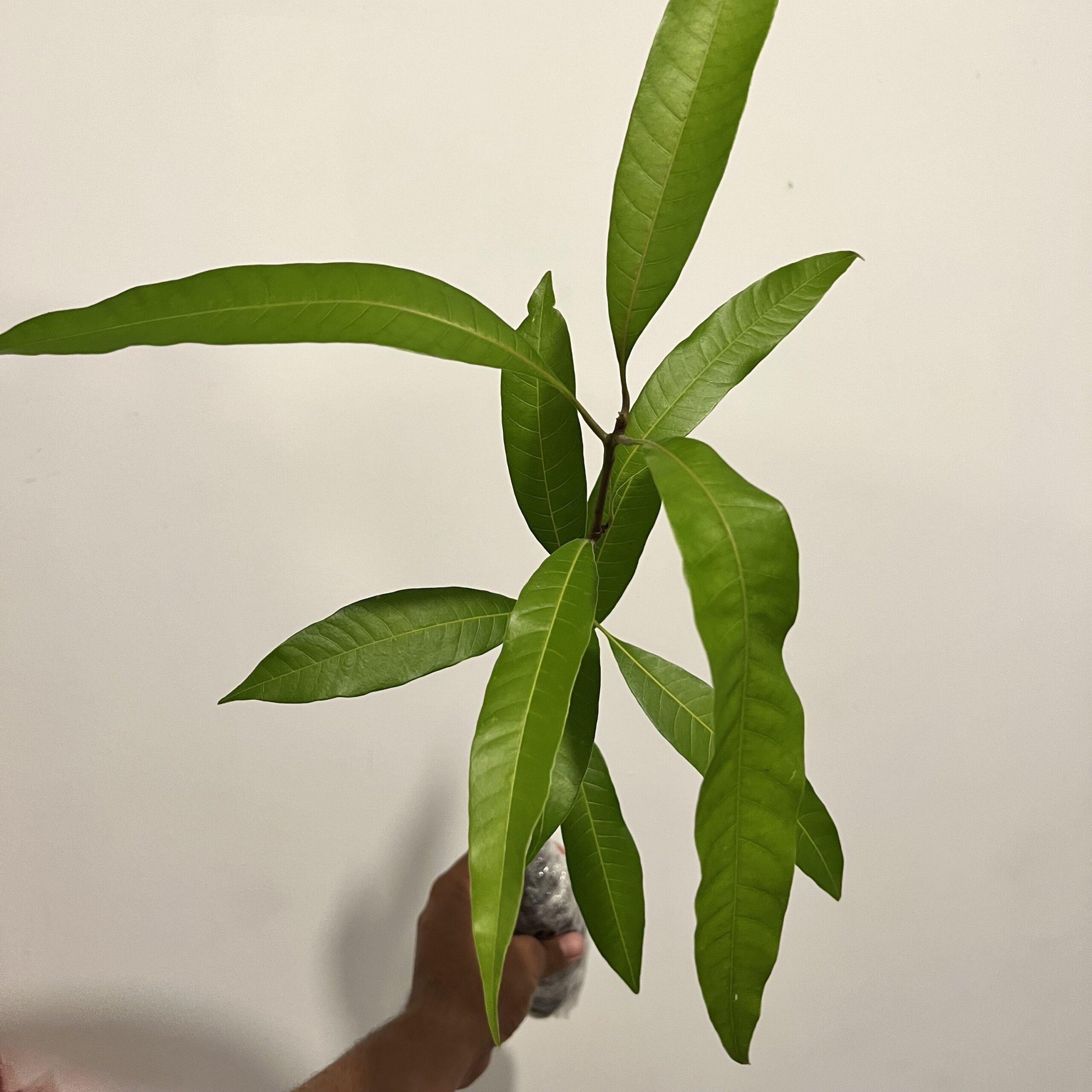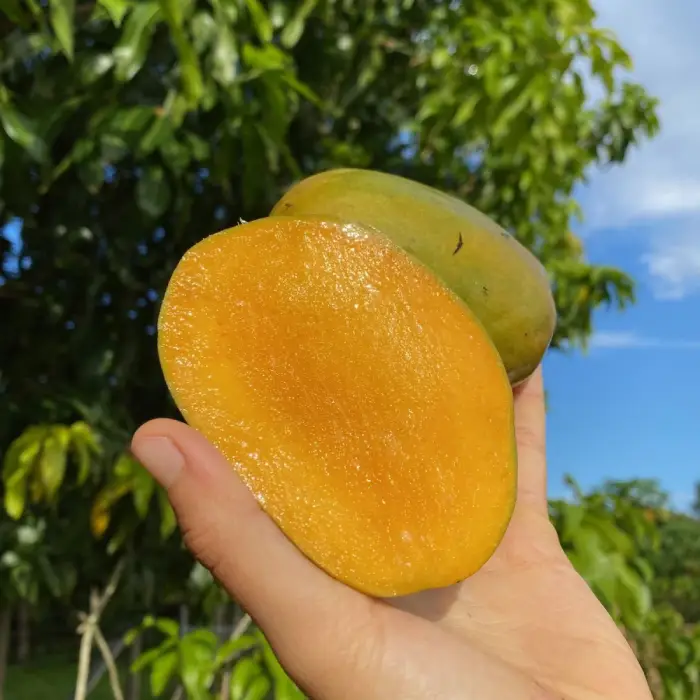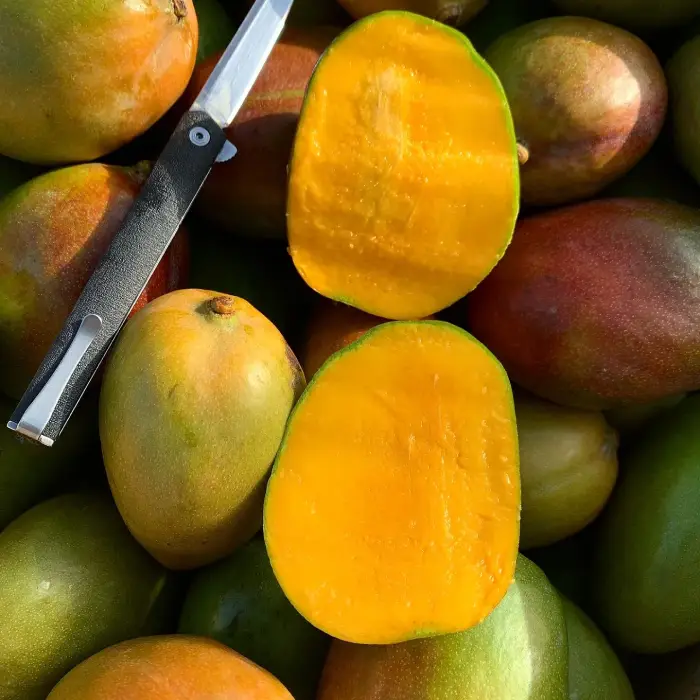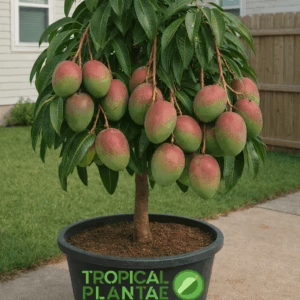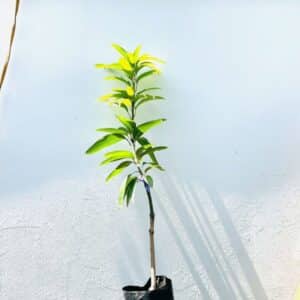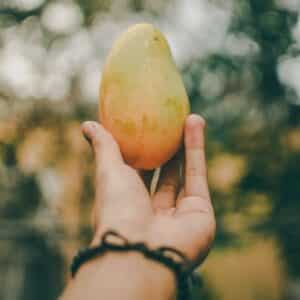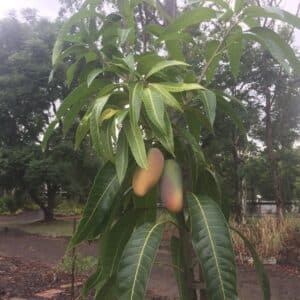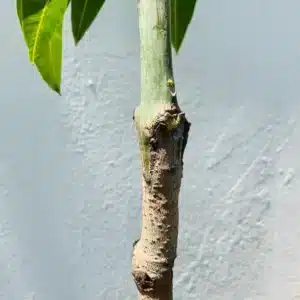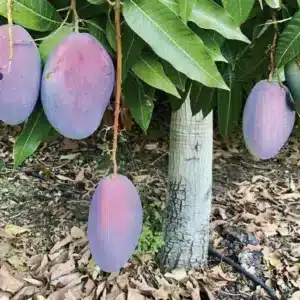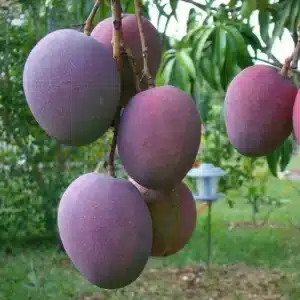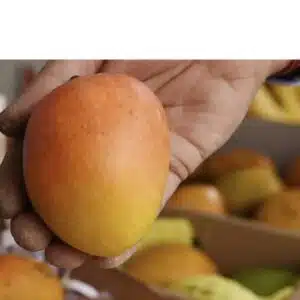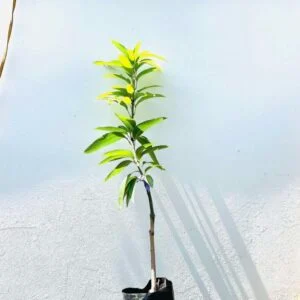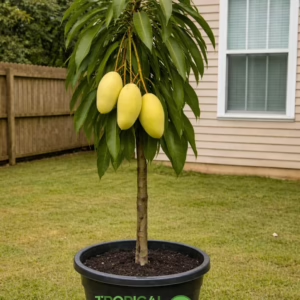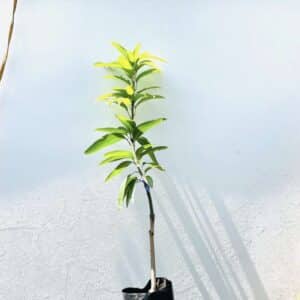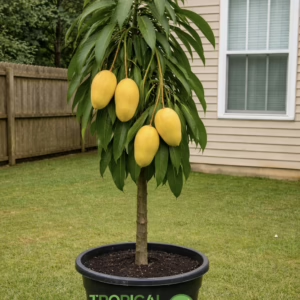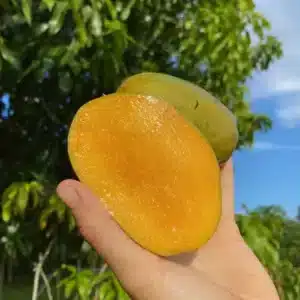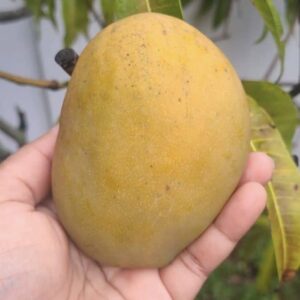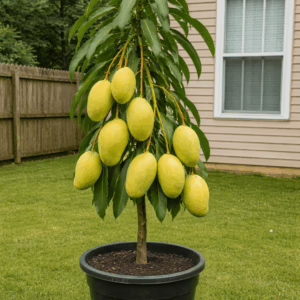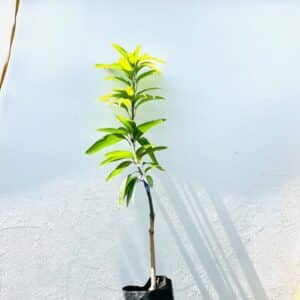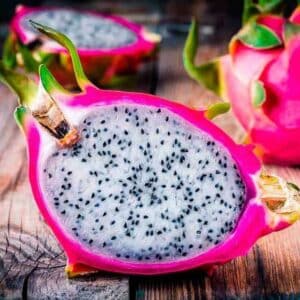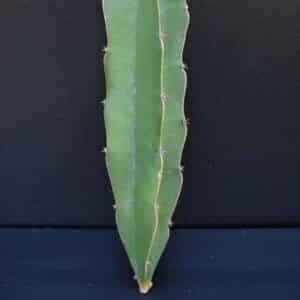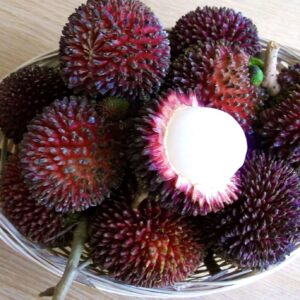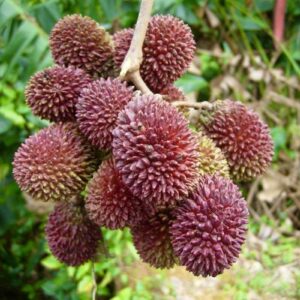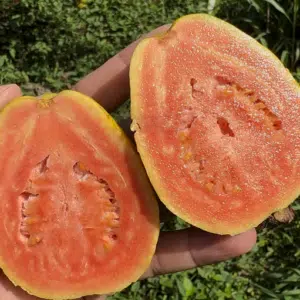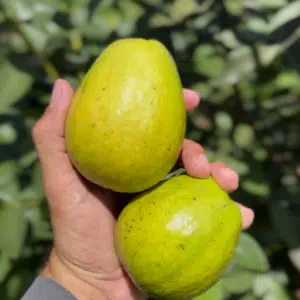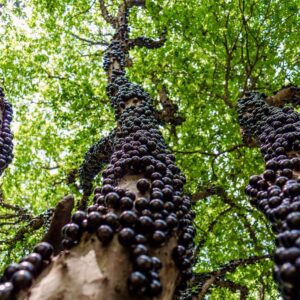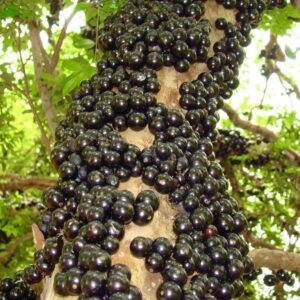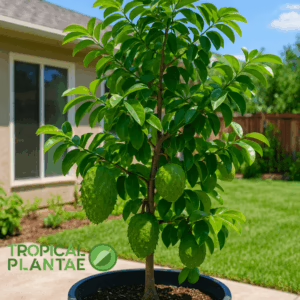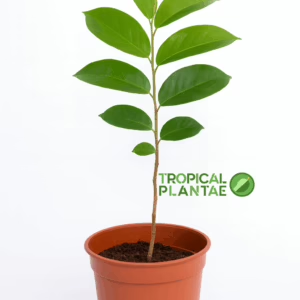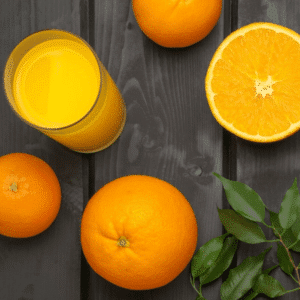
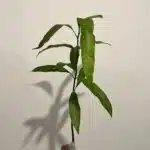
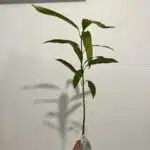
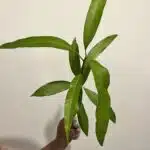
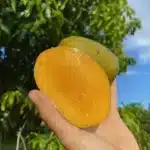
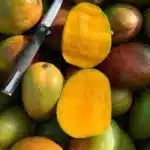
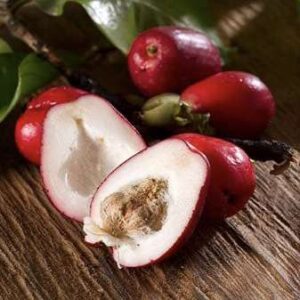

Seedling Julie Mango (mangifera indica) live fruit tree 1’-2′ feet
$45.00 Original price was: $45.00.$34.99Current price is: $34.99.
Julie mango seedlings are a rewarding investment for gardeners seeking to grow this iconic and flavorful variety. With proper care, including regular watering, fertilizing, and pest management, these seedlings can develop into healthy, productive trees that provide years of enjoyment. Whether for their delicious fruit or their compact, ornamental appeal, Julie mango seedlings are a valuable addition to any tropical or subtropical garden.
The Julie Mango, scientifically known as Mangifera indica, is a beloved mango variety celebrated for its compact size, rich flavor, and adaptability to small spaces. Native to the Caribbean, this mango has become a favorite among home gardeners and mango enthusiasts for its manageable growth habit and uniquely sweet fruit. Julie mango seedlings are an excellent choice for those looking to grow this iconic tropical fruit in their own garden.
Appearance and Characteristics:
Julie mango trees are naturally semi-dwarf, typically reaching heights of 10 to 15 feet (3 to 4.5 meters) at maturity, though they can be pruned to remain smaller. Their dense, rounded canopy and glossy green leaves make them an attractive addition to any landscape or garden.
The fruit of the Julie mango tree is medium-sized, with a flattened, oval shape. When ripe, the skin develops a beautiful yellow-orange hue with occasional blushes of red or green. The flesh is bright orange, fiberless, and exceptionally juicy, offering a rich, aromatic flavor with hints of tropical sweetness and tanginess. Julie mangoes are known for their firm texture and creamy consistency, making them a favorite for fresh eating and culinary applications.
Seedling Characteristics:
Julie mango seedlings are grown from the seeds of the Julie mango and are ideal for planting in warm, tropical to subtropical climates. As seedlings, these young plants are easy to handle and establish quickly when provided with proper care. While seedlings may take longer to bear fruit compared to grafted trees (often 5 to 7 years), they are a more affordable option and can produce vigorous, healthy trees.
Growing Conditions:
Julie mango seedlings thrive in warm climates and are best suited for USDA hardiness zones 10 through 12. They prefer temperatures between 70°F and 85°F (21°C to 29°C) and are sensitive to frost. In cooler regions, Julie mango seedlings can be grown in containers and moved indoors during colder months.
The seedlings grow best in well-draining, sandy, or loamy soils with a slightly acidic to neutral pH range of 5.5 to 7.5. Full sun exposure is essential for optimal growth, flowering, and fruit production.
Watering and Fertilizing:
Young Julie mango seedlings require regular watering to establish their root systems. Water deeply every 7 to 10 days, ensuring the soil remains moist but not waterlogged. As the tree matures, reduce the frequency of watering, allowing the soil to dry slightly between sessions.
Fertilizing is important for the healthy development of Julie mango seedlings. Use a balanced fertilizer with nitrogen (N), phosphorus (P), and potassium (K) every 6 to 8 weeks during the growing season. Incorporating organic compost or well-rotted manure into the soil provides additional nutrients and improves soil quality.
Care and Maintenance:
Julie mango seedlings are relatively low-maintenance but benefit from routine care. Keep the area around the seedling free of weeds to reduce competition for nutrients and water. Mulching around the base of the plant helps retain soil moisture, regulate temperature, and suppress weeds. Avoid placing mulch directly against the stem to prevent rot.
As the seedling grows, pruning is recommended to shape the tree, remove dead or damaged branches, and encourage a strong structure. Pruning should be done during the dormant season to minimize stress on the plant.
Fungal diseases such as anthracnose and powdery mildew may affect young plants, particularly in humid conditions. Ensuring good air circulation, avoiding overhead watering, and applying copper-based fungicides as needed can help prevent these issues.
Propagation:
Julie mango seedlings are propagated from seeds. To grow a Julie mango seedling, remove the seed from a fresh Julie mango fruit and carefully extract the inner embryo. Plant the seed in well-draining soil, ensuring it is covered with about 1 inch of soil. Keep the soil consistently moist and place the container in a warm, sunny location. Germination typically occurs within 2 to 4 weeks.
It’s important to note that Julie mango seedlings grown from seed may not produce fruit identical to the parent tree due to genetic variation. However, they can still yield high-quality fruit with proper care.
Uses and Benefits:
Julie mango trees are prized for their fruit, which is versatile and highly nutritious. The sweet, aromatic flesh is perfect for fresh consumption, smoothies, desserts, and salads. The fruit is also used to make jams, jellies, juices, and traditional Caribbean recipes.
In addition to its culinary value, the Julie mango tree has ornamental appeal due to its compact size and lush, green foliage. It is an excellent choice for home gardens, patios, or urban spaces where larger trees may not be suitable.
Mangoes are a rich source of vitamins A and C, dietary fiber, and antioxidants, making them a healthy addition to any diet. The fruit is known for its immune-boosting properties and potential benefits for skin and digestion.
Cultural and Culinary Significance:
The Julie mango holds a special place in Caribbean culture, where it is celebrated for its unique flavor and adaptability to smaller spaces. It is a popular variety in tropical markets and is often featured in traditional dishes and beverages.
Challenges of Cultivation:
Growing Julie mango seedlings requires patience, as seed-grown trees take several years to bear fruit. Additionally, the seedlings need consistent care to establish strong root systems and healthy growth. Pests, diseases, and climatic conditions can also pose challenges, requiring attentive management.
Container Growth:
Julie mango seedlings are well-suited for container gardening, making them an excellent option for gardeners with limited space. Use a large container with adequate drainage and fill it with a high-quality, well-draining potting mix. Container-grown seedlings require more frequent watering and fertilizing than those planted in the ground but offer the advantage of mobility.
| Weight | 10 oz |
|---|---|
| Dimensions | 22 × 4 × 4 in |
| Planting Bag + Soil |
Planting bag + Soil ,I have soil and container |

